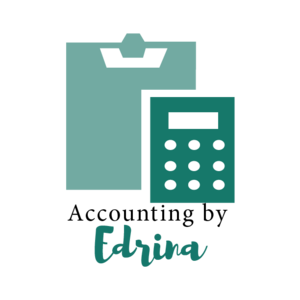Let's Talk About Budgeting
I know, I know; there’s a really cool TV show on right now that is way more entertaining! Well, there is no need to worry or stress about this topic. I am here to help! I am going to break this down as simple as possible.
Most would agree that it is essential to have a budget, and stick to it. But, do you really know WHY that is? As we journey through life and become more and more established, we must think through the role our finances play as we learn and grow. The future is rich with treasure for us to attain, are we financially prepared for it? Are you hoping to purchase a new car or a new home? Perhaps you are planning on getting married and having kids? How will you prepare yourself if you don’t start right away?!
When I speak with people about budgeting, they often tell me that they just want to know how much extra money they have for their own discretionary spending. Whether it is on coffee, fast food, getting your haircut or nails done, clothing, and the like. However, that’s not the place we should start when creating a budget.
To start, let’s look at setting up a basic budget, which is used to monitor your income and spending. When starting off on creating a new budget there are a few essential categories that you will need to take into consideration such as: fixed expenses, variable spending, and periodic spending.
Fixed expenses are typically related to rent or mortgage, car payments, insurance (home, car, and health), utilities (internet, cable, gas, and electric), phones (cell and home), and groceries. These are known items that are a fixed amount each month. These expenses should be listed directly under your total monthly income, as they take precedence and priority.
The variable spending category includes that of dining out, charity organizations/donations, hair/nails/beauty supplies, medications, laundry/dry cleaning. This type of spending is known, but is not an exact fixed amount each month. With this in mind, it is best to estimate the amount needed on a monthly basis in order to account for these expenses.
Periodic expenses include items like annual car registration, car maintenance, doctor appointments/visits, taxes (income and property). These are not as typical as the other expenses, but they need to be estimated as well.
All of these items should be listed from top to bottom, in order of priority. When you have completed the assessment you will be able to subtotal and come to your net balance.
Now, I know what you’re thinking… But, Edrina, I have credit card debt? How do I factor that into my budget? To that I would say, stop spending more than you make! But, seriously... I mean, of course we are all guilty of this at times. I just love to go shopping! But, having restrain and sticking to your budget is more fulfilling than being in debt. As you create the foundation to what your budget should be, this allows you to become more aware of your spending habits and how to create boundaries as a way of monitoring where your money goes. You end up on the forefront, becoming in charge of your finances, rather than allowing your finances to be in charge of you. You might also be thinking, so -- what should I do with that net balance? How do I manage that? Well, you are in luck! The focus of the next blog will be spent on topics such as creating and maintaining savings, as well as paying off and preventing debt!
Now, get to it, and happy budgeting!

